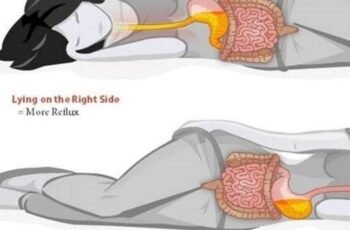
Sure! Here’s a clear and engaging article on:
🛌 Find Out How Sleeping on Your Left Side Can Help You Have a More Peaceful Night’s Sleep
Getting a good night’s sleep isn’t just about how many hours you rest—your sleeping position can also make a big difference. Among the various positions, sleeping on your left side has been found to offer some surprising health benefits that can lead to deeper, more peaceful sleep.
🌙 Why Sleeping on Your Left Side Matters
Here are some key benefits of left-side sleeping and how it supports better rest:
1. 🫀 Improves Heart Circulation
Sleeping on your left side helps blood flow more easily back to your heart. This position reduces pressure on the heart, especially helpful for people with high blood pressure or heart conditions.
2. 🩺 Supports Digestion
Your stomach and pancreas sit on the left side of your body. Sleeping on your left allows gravity to aid digestion, helping food move more smoothly through your digestive tract and reducing acid reflux or bloating.
3. 🫁 Reduces Snoring and Sleep Apnea
Left-side sleeping keeps your airways more open, reducing the chance of snoring or breathing disruptions like sleep apnea. This can lead to more restful sleep for both you and your partner.
4. 🤰 Ideal for Pregnant Women
Doctors often recommend left-side sleeping during pregnancy. It improves circulation to the uterus, kidneys, and fetus, while also taking pressure off the liver.
5. 💩 Promotes Better Lymph Drainage
Your lymphatic system, which removes waste and toxins from your body, works more efficiently on your left side. This can help your body detox more effectively while you sleep.
💡 Tips for Getting Comfortable on Your Left Side:
- Use a body pillow to support your back or hug for balance.
- Place a pillow between your knees to reduce pressure on your hips and spine.
- Choose a mattress that supports side sleepers—medium-soft works best.
💤 Final Thoughts:
If you’re struggling with restless nights or health issues like heartburn or snoring, try switching to your left side at bedtime. This simple change could lead to deeper, more restorative sleep—naturally.
Would you like this formatted as a blog post or infographic?

